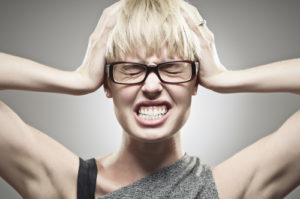 Probably most would agree that daily brushing and flossing is most often the recommendation to maintain good dental health. For some, good dental hygiene it is not enough. Did you know that an estimated 25% of the population clench and/or grind their teeth? The medical term for teeth grinding is bruxism. Most people that do clench or grind, do so while asleep. Clenching and/or grinding not only damages teeth and fillings and leads to receding gums and root canals, but also can cause tooth sensitivity, migraine headaches and pain in the shoulders, neck, back, and ears. The recommended treatment for the estimated 25% who grind their teeth is wearing a bite guard which allows wear and tear on the guard, not the teeth and helps to relax jaw muscles.
Probably most would agree that daily brushing and flossing is most often the recommendation to maintain good dental health. For some, good dental hygiene it is not enough. Did you know that an estimated 25% of the population clench and/or grind their teeth? The medical term for teeth grinding is bruxism. Most people that do clench or grind, do so while asleep. Clenching and/or grinding not only damages teeth and fillings and leads to receding gums and root canals, but also can cause tooth sensitivity, migraine headaches and pain in the shoulders, neck, back, and ears. The recommended treatment for the estimated 25% who grind their teeth is wearing a bite guard which allows wear and tear on the guard, not the teeth and helps to relax jaw muscles.
What causes teeth grinding? According to studies cited by the Sleep Foundation, several factors can contribute to bruxism, including anxiety, stress, alcohol consumption, cigarette smoking, caffeine, sleep apnea, snoring and fatigue.
Read article here: https://sleepfoundation.org/sleep-disorders-problems/bruxism-and-sleep
However, recent research has also shown that teeth grinding, or bruxism, may be an instinctual response that helps us survive.
Do you grind your teeth? Many people don’t know they grind their teeth since it usually happens at night when you are in a deep sleep. Ask your dentist to check for symptoms of teeth grinding during your next dental exam.

